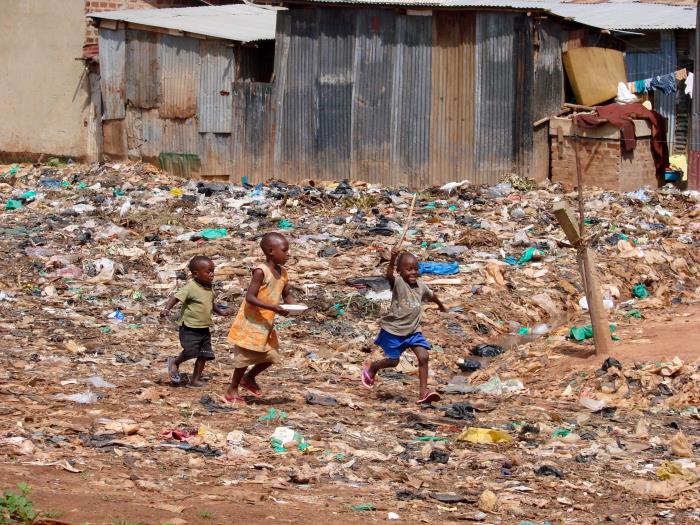
A pair of new studies describe COVID-19–related parental loss and occupational death rates, with a global analysis finding that children were more likely to be orphaned if they live in the poorest countries with high rates of noncommunicable diseases, and the other showing that essential workers in California had higher rates of coronavirus deaths and excess deaths than those with less workplace exposure.
Poor countries, high noninfectious disease rates
In a study published yesterday in PLOS Global Public Health, a team led by Australian National University (ANU) researchers used an online calculator to estimate the total number of orphans per COVID-19 death for 139 countries from the start of the pandemic to Sep 28, 2021.
The risk of COVID-19 death leading to orphaned children varied widely around the world, with the highest risk in countries with below-median per-capita gross domestic product (GDP) (1.56 orphans per death), relative to countries with higher GDPs (0.09). African countries were particularly hard hit. For example, in Angola, two children were orphaned per COVID-19 death, compared with one orphan for every eight COVID deaths in Australia (0.13 orphans per COVID-19 death).
Other factors influencing risk included a high prevalence of poverty and a high percentage of reproductive-aged people (15 to 49 years old) with noninfectious diseases such as diabetes and heart disease. Second-dose COVID-19 vaccination was tied to a lower risk of orphanhood.
"The risk of children being orphaned per COVID-19 death, alongside fertility rate, is due to there being a greater share of COVID-19 deaths among younger persons," the researchers wrote. "Our findings underscore the need for uniform vaccination coverage across the globe, which will minimize the number of deaths among all demographics including parents, and therefore minimize the number of children becoming orphaned."
In an ANU press release, lead author and PhD candidate Callum Lowe said that some people think of COVID-19 as an older person's disease, but many children have been affected by the loss of their caregivers.
"These are children that may have lost one or, sometimes tragically, both parents," he said. "They were grieving in lockdowns, away from other family and friends and without the routine of normal school life. That has an impact on their mental health, their education, and their wellbeing over the long term."
COVID-19 will have a huge effect on the next generation, Lowe said. "The research highlights the need for government resources and policy settings that ensure children affected by the death of one or both parents are properly supported, particularly in vulnerable populations like First Nations and rural communities," he said.
Read more...







